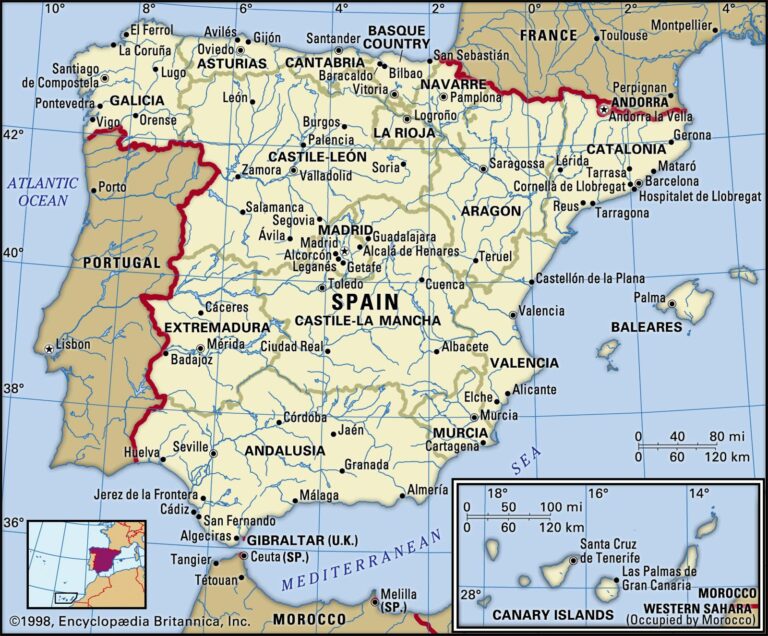Spain has announced plans to declassify a significant number of secret files from the Franco era, aiming to shed new light on one of the most contentious periods in the country’s modern history. The move, revealed by government officials and reported by Reuters, is expected to provide historians and the public unprecedented access to documents relating to the dictatorship of Francisco Franco, which ruled Spain from 1939 to 1975. This initiative reflects ongoing efforts to address the legacy of the Franco regime and promote greater transparency about its political repression and human rights abuses.
Spain Moves to Declassify Franco Era Files Unlocking Historical Truths
Spain’s government has taken a significant step towards transparency by proposing the declassification of thousands of secret files from the Franco dictatorship era. These documents, locked away for decades, are expected to shed light on the inner workings of the regime, including political repression, censorship, and the fate of disappeared citizens. The move aims to provide historians, researchers, and the public with a clearer understanding of one of Spain’s most contentious periods.
Key aspects of the declassification initiative include:
- Opening archives related to the Nationalist government and state security operations
- Making records accessible online for broader public research
- Facilitating historical justice and reconciliation efforts
| Category | Estimated File Count | Period Covered |
|---|---|---|
| Political Surveillance | 25,000+ | 1939-1975 |
| Judicial Proceedings | 12,000+ | 1940-1970 |
| Censorship Records | 8,500+ | 1936-1975 |
Implications for Transparency and Justice in Post-Dictatorship Spain
The Spanish government’s move to declassify secret files from the Franco era marks a significant step toward enhancing transparency about a period long shrouded in opacity. For decades, many victims of the dictatorship and their families have demanded access to hidden archives, hoping to unearth truths about abuses, disappearances, and state crimes. Unlocking these documents could finally illuminate the mechanisms of repression and facilitate a more comprehensive historical record.
Key potential outcomes include:
- Greater public awareness of human rights violations during Franco’s rule
- Support for ongoing judicial inquiries and reparations claims
- Strengthening democratic institutions through openness
- Encouraging national reconciliation by confronting difficult past realities
| Aspect | Potential Impact |
|---|---|
| Access to Archives | Enables new evidence to emerge, aiding justice |
| Judicial Processes | Facilitates prosecutions and truth commissions |
| Public Trust | Boosts confidence in government accountability |
Experts Urge Comprehensive Review and Public Access to Former Regime Documents
Leading historians, human rights advocates, and political analysts have called for a thorough and transparent examination of the files from Spain’s Franco era. These experts emphasize that unlocking these archives is essential not only for understanding the country’s past but also for healing national wounds caused by decades of dictatorship. They argue that access to these documents can shed light on suppressed atrocities, political repression, and the social dynamics under Francisco Franco’s rule.
Key points raised by experts include:
- Implementing a clear framework ensuring public access while protecting sensitive personal data.
- Encouraging academic research through digitalization and cataloguing of the archives.
- Using the files to foster reconciliation and educational initiatives nationwide.
- Balancing transparency with respect for privacy and national security concerns.
| Aspect | Importance | Proposed Action |
|---|---|---|
| Historical Clarity | Critical | Comprehensive declassification |
| Public Trust | High | Open access portals |
| Academic Research | Essential | Collaborations with universities |
| Privacy Concerns | Moderate | Redaction policies |
Final Thoughts
The Spanish government’s proposal to declassify secret files from the Franco era marks a significant step toward greater transparency and historical reckoning. As the nation continues to grapple with the legacy of dictatorship, opening these archives promises to shed new light on a turbulent chapter of Spain’s past. The move has elicited a range of reactions, reflecting the complexities involved in confronting history. Observers will be watching closely as lawmakers debate the proposal and its potential impact on Spanish society and collective memory.




